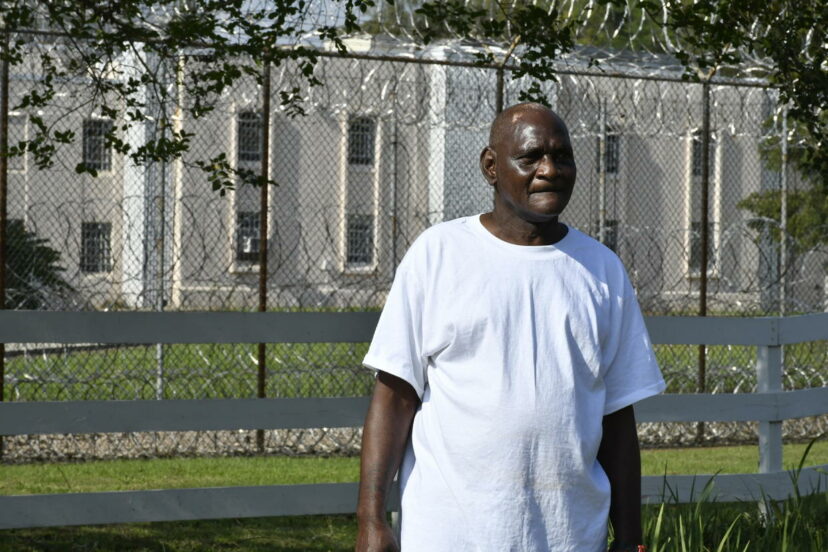Good News
Louisiana man who was given life sentence for stealing hedge clippers finally walks free
A man who was serving a life sentence for stealing hedge clippers has been granted parole after spending 23 years in prison.

A man who was serving a life sentence in Louisiana for stealing hedge clippers from someone’s garage in 1997 has been granted parole after spending 23 years in prison.
Fair Wayne Bryant, 63, was facing life behind bars due to the attempted burglary conviction and his criminal record. However, the state’s draconian habitual offender laws led to Bryant’s harsh sentence.
Bryant’s life sentence became the subject of withering criticism from civil liberties advocates and the chief justice of Louisiana’s Supreme Court, who called the sentence “cruel and unusual” and a legacy of slavery and racism in the Southern state.

According to Bryant’s parole panel, Bryant’s criminal record consisted of 22 arrests and 11 convictions. The past convictions included four felonies, only one of which was for a violent crime – an attempted armed robbery of a taxi driver in 1979.
In 1997, Bryant was driving when his car stalled and he went into somebody’s garage looking for a tank of gas. At that point, he was encountered and attempted to flee on foot.
When police apprehended him, he was accused of having stolen a pair of hedge clippers that were found in his vehicle, a claim that he denied. Evidence suggested that he had, however, intended to commit theft. Bryant’s previous criminal record and the state’s harsh repeat offender laws led to him receiving a life sentence, which he tried to appeal for the next 23 years.
Two months ago, Bryant’s case appeared before the Louisiana Supreme Court, which voted 5-1 to reject the appeal. The five votes came from while male board members, while the sole dissenting vote came from Bernette J. Johnson, the state’s first Black Chief Justice, who called for a review of the case.
In her opinion, Chief Justice Johnson blasted the sentence as completely disproportionate to the crime, noting that Bryant’s sentence had already cost taxpayers $518,667.
“Harsh habitual offender laws … permit a life sentence for a Black man convicted of property crimes,” Johnson wrote. “This man’s life sentence for a failed attempt to steal a set of hedge clippers is grossly out of proportion to the crime and serves no legitimate penal purpose.”
“If he lives another 20 years, Louisiana taxpayers will have paid almost one million dollars to punish Mr. Bryant for his failed effort to steal a set of hedge clippers,” she added.
Additionally, she described his past criminal offenses as the sort of “petty theft” rooted in the “ravages of poverty or addiction.”

She also blasted the state’s notorious repeat offender law as similar to the racist Black Codes and “Pig Laws” that unjustly penalized poor Black people for crimes like stealing farm animals or being unemployed, while also treating common misdemeanors and trivial offenses as felonies. In Mississippi, “pig laws” meant that any theft of property over $10 was enhanced to grand larceny. As a result of the “pig laws,” the prison population quadrupled.
On Thursday, the Committee on Parole voted unanimously to release him by a vote of 3-0. Bryant will be required to attend Alcoholics Anonymous meetings due to his history of drug and alcohol abuse, and he must also perform community service and adhere to a curfew.
Louisiana State University (LSU) Professor Robert Lancaster, director of the LSU Parole and Re-entry Clinic, represented Bryant during the hearing. Bryant was also assisted by Kelsey Jenkins, a third-year LSU Law student who helped Lancaster draft a memo that was submitted in support of early release.
“Mr. Bryant’s sentence is an example of the flaws in Louisiana’s criminal legal system, but the Parole Committee’s decision to grant him early release shows the importance of periodic evaluation of an individual’s rehabilitation, which Mr. Bryant will continue with the support of the Louisiana Parole Project, Inc.,” wrote Jenkins.
Rights defenders such as the American Civil Liberties Union of Louisiana hailed the decision as long overdue.
“Now it is imperative that the Legislature repeal the habitual offender law that allows for these unfair sentences, and for district attorneys across the state to immediately stop seeking extreme penalties for minor offenses,” said Louisiana ACLU executive director Alanah Odoms in an emailed statement.
Typos, corrections and/or news tips? Email us at Contact@TheMindUnleashed.com
